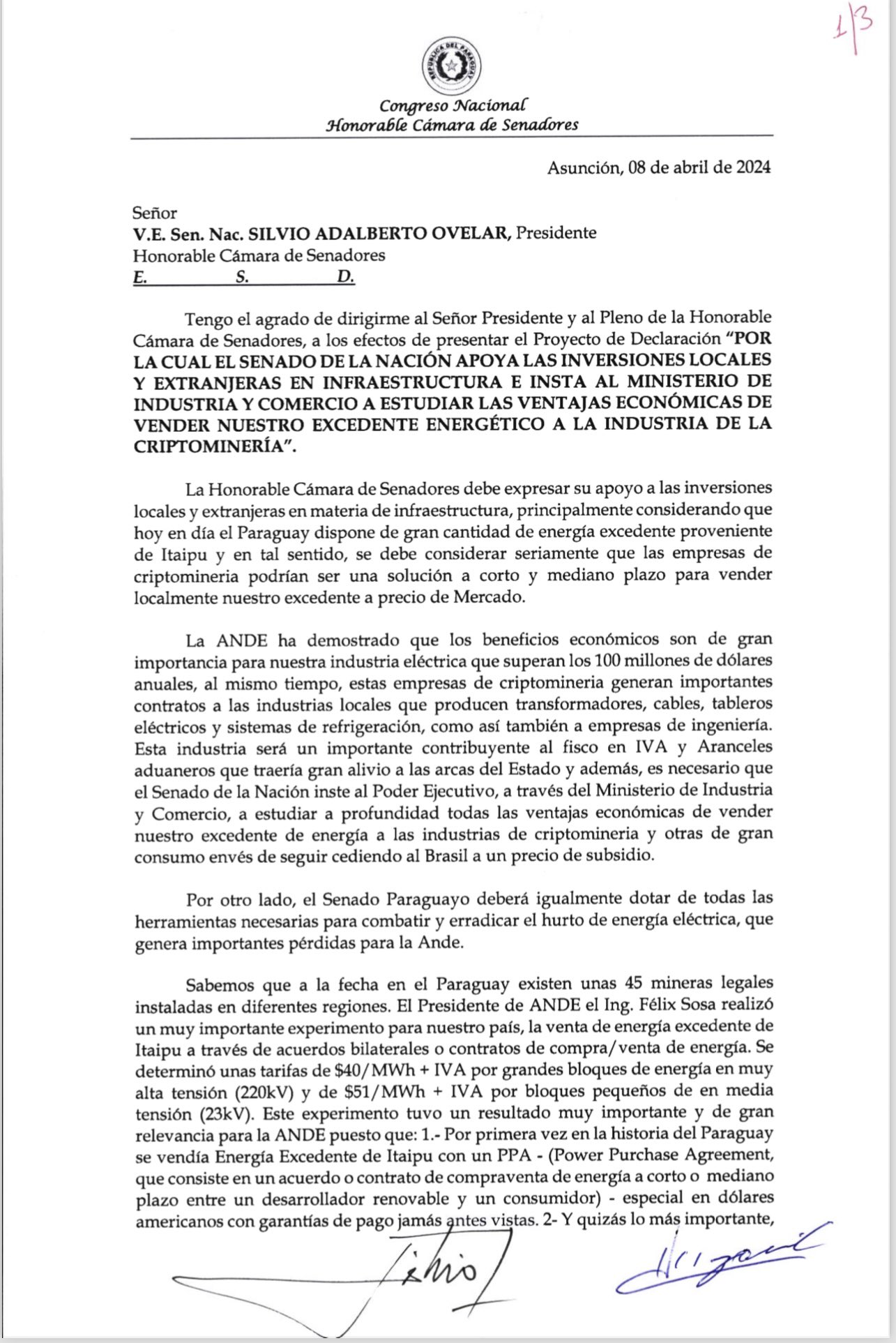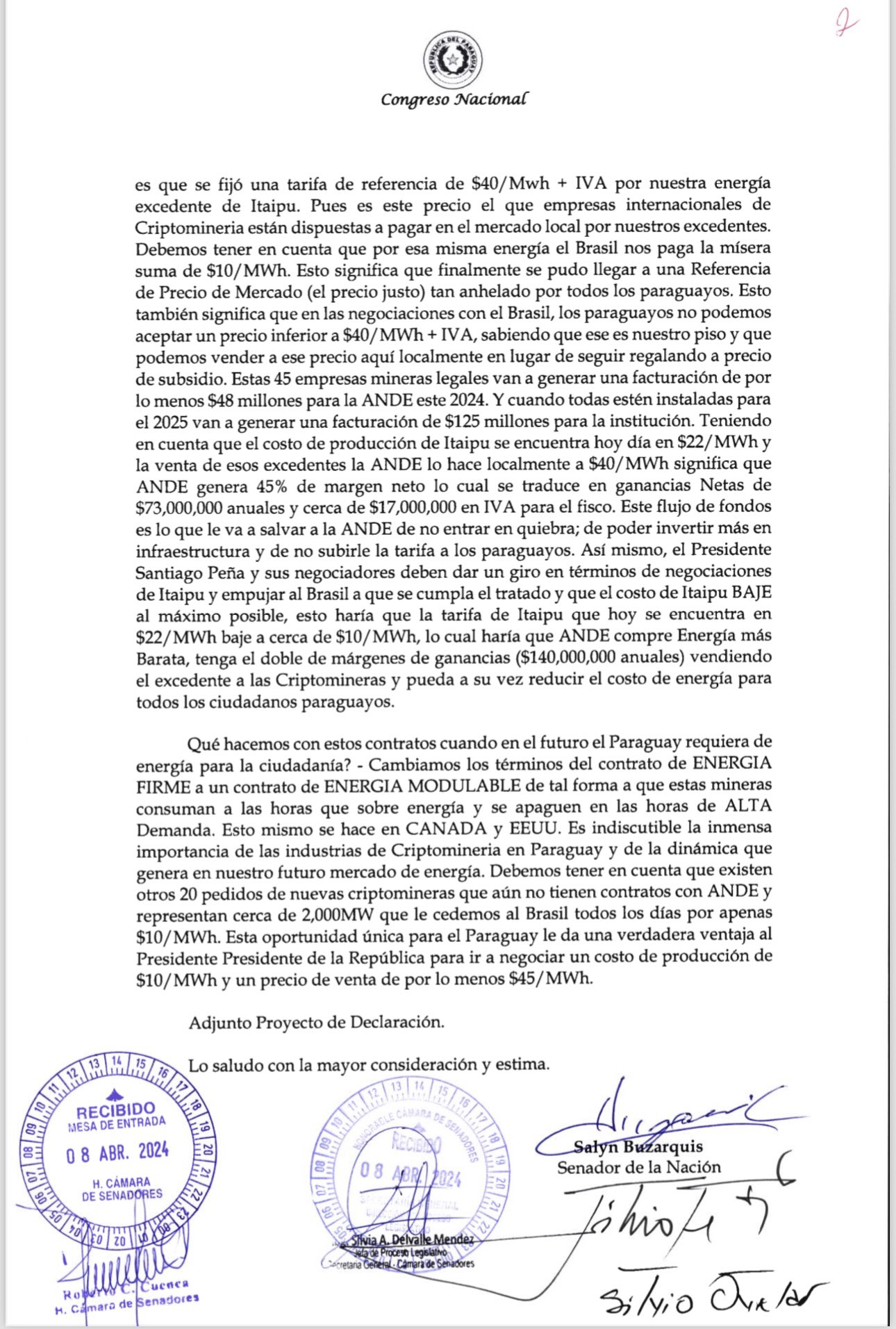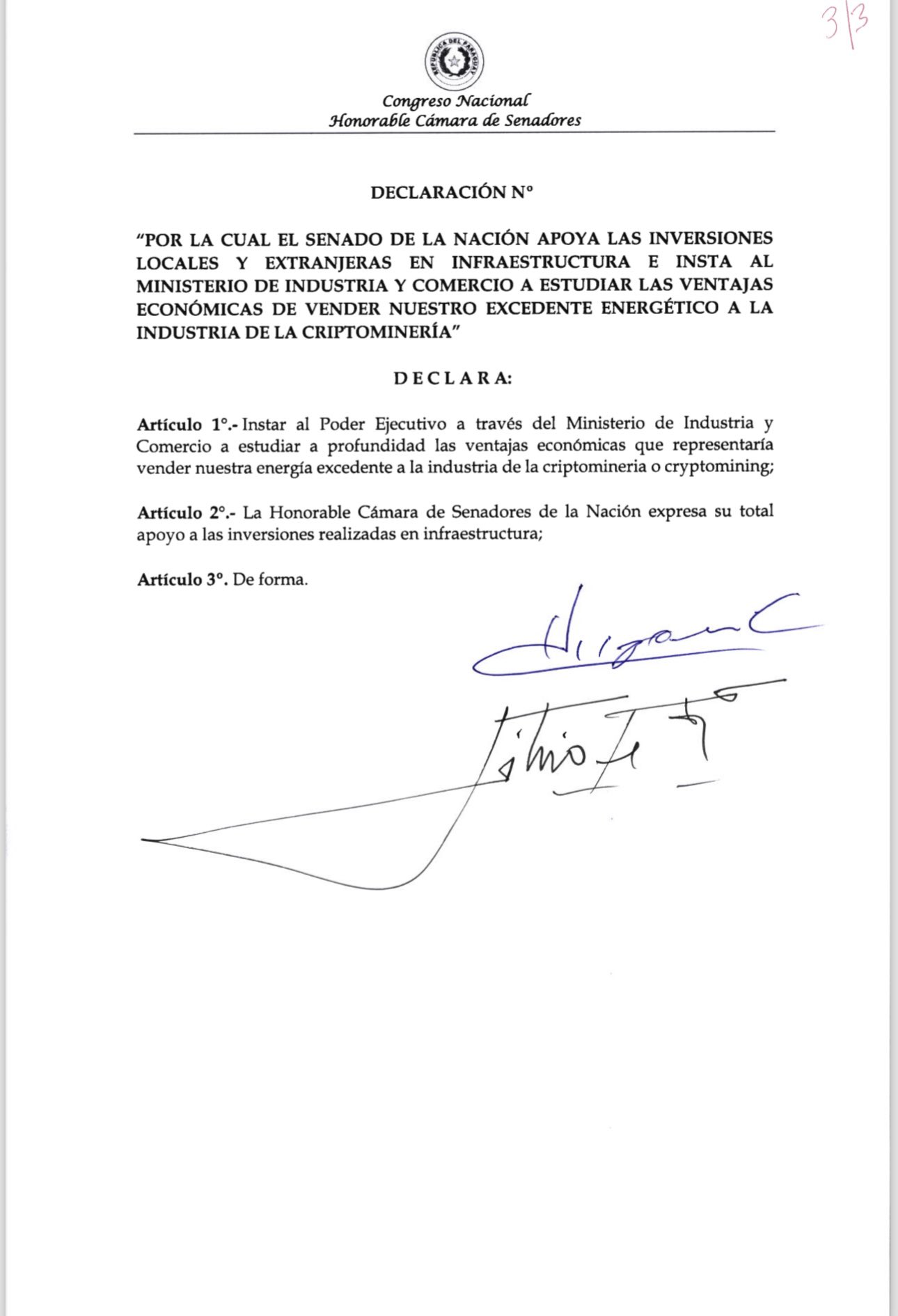The debate about Bitcoin mining in Paraguay continues
A debate about Bitcoin mining is currently taking place in Paraguay. Blocktrainer.de reported that some Paraguayan senators introduced a bill to Congress on April 3 that includes a temporary ban on Bitcoin mining until certain rules for dealing with mining companies have been drawn up. The background to this was the economic losses incurred by the national energy supplier (ANDE) due to illegal mining facilities, which are also said to have caused numerous power outages.
A debate developed on this draft law, which illustrates some of the differences of opinion among Paraguayan legislators. In response to the bill, Senator Salyn Buzarquis submitted a resolution on April 8 supporting the sale of electricity to the mining industry. This resolution was approved by the Senate on April 10.
HOY APROBAMOS EL PROYECTO DE DECLARACIÓN POR LA CUAL EL SENADO DEL #Paraguay APOYA LAS INVERSIONES EXTRANJERAS EN INFRAESTRUCTURA E INSTA AL @MIC_PY A ESTUDIAR LAS VENTAJAS ECONÓMICAS DE VENDER NUESTRO EXCEDENTE ENERGÉTICO A LA INDUSTRIA DE LA #CryptoMining #BITCOIN pic.twitter.com/XPF94zWKK2-
Salyn Buzarquis (@SalynBuzarquis) April 10, 2024
Economic advantages through mining companies
The statement emphasizes the positive impact of the Bitcoin mining industry and criticizes certain energy agreements with Brazil. According to the statement, foreign Bitcoin mining companies would pay much better prices for the country's sustainable surplus energy for sale than neighboring Brazil. Currently, 45 foreign, legal mining companies pay electricity tariffs of between 40 and 52 US dollars per megawatt hour (MWh) plus taxes, which adds over 100 million US dollars to Paraguay's coffers every year. Buzarquis estimates that revenues will rise to 125 million US dollars in 2025. This would give the national electricity supplier more leeway to expand its infrastructure and enable low electricity tariffs for private households, Buzarquis added.
The power purchase agreements (PPAs) with the mining industry are therefore far more economically advantageous for Paraguay than selling 2,000 MWh to Brazil at heavily subsidized rates. The neighboring country only pays a quarter of the mining companies' electricity prices, i.e. ten US dollars per MWh. For this reason, part of the Paraguayan Senate is calling in this declaration for the energy agreements with Brazil to be terminated and for the energy to be made available instead to twenty additional mining companies that are currently waiting for new contracts.
Demand response programs as a solution?
A possible amendment to the contracts with the mining industry is also being discussed. Similar to the demand-response agreements in Texas (USA), the energy supply to mining companies could be restricted if necessary - for example at times of high demand for electricity. Mining operations would then only be permitted when demand is low. This would allow Paraguay to support the growth of its economy without having to completely forego foreign mining companies (and the corresponding income for the country).
By proposing such demand-response concepts, the Paraguayan Congress's agreement on how to deal with the Bitcoin mining industry could be advanced. With clear rules for the mining industry, the draft law temporarily banning mining is no longer valid. It remains to be seen how Congress will decide.







